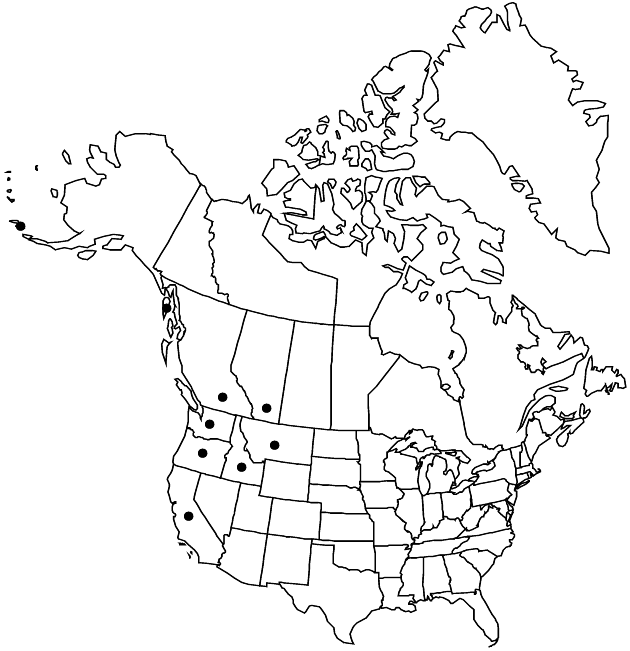Difference between revisions of "Symphyotrichum subspicatum"
Phytologia 77: 293. 1995.
imported>Volume Importer |
RevisionBot (talk | contribs) m (Bot: Adding category Revised Since Print) |
||
| (3 intermediate revisions by 2 users not shown) | |||
| Line 69: | Line 69: | ||
|publication year=1995 | |publication year=1995 | ||
|special status=Endemic | |special status=Endemic | ||
| − | |source xml=https:// | + | |source xml=https://bitbucket.org/aafc-mbb/fna-data-curation/src/2e0870ddd59836b60bcf96646a41e87ea5a5943a/coarse_grained_fna_xml/V19-20-21/V20_1199.xml |
|tribe=Asteraceae tribe Astereae | |tribe=Asteraceae tribe Astereae | ||
|genus=Symphyotrichum | |genus=Symphyotrichum | ||
| Line 77: | Line 77: | ||
}}<!-- | }}<!-- | ||
| − | -->[[Category:Treatment]][[Category:Symphyotrichum sect. Occidentales]] | + | --> |
| + | |||
| + | [[Category:Treatment]] | ||
| + | [[Category:Symphyotrichum sect. Occidentales]] | ||
| + | [[Category:Revised Since Print]] | ||
Latest revision as of 19:35, 6 November 2020
Perennials, 40–120 cm, colonial; long-rhizomatous. Stems 1–5+, ascending to erect, proximally glabrous, distally usually glabrous or sparsely puberulent, rarely densely hirsute. Leaves thin, margins entire or often serrate, apices acute, faces glabrous or sparsely puberulent; basal withering by flowering, petiolate to subpetiolate, blades oblanceolate to narrowly elliptic or linear, 50–150 × 3–25 mm, bases attenuate, margins entire or sometimes serrate, apices acute; proximalmost cauline withering by flowering, subpetiolate or sessile, blades obovate or oblanceolate to narrowly elliptic, rarely linear, 50–150 × 4–35 mm, bases attenuate or cuneate; distal sessile, blades 30–100(–130) × 3–15(–30) mm, bases cuneate, rounded or sometimes ± auriculate, margins sometimes serrate, scabrous. Heads in open, corymbiform, paniculiform, or racemiform arrays, branches 5–30 cm. Peduncles sparsely hairy, bracts 1–10, lance-oblong to linear, sometimes clasping, margins scabrous. Involucres campanulate, 5–8(–10) mm. Phyllaries in 4–6 series, appressed or squarrose, oblong or narrowly oblanceolate or linear (outer) to linear (inner), unequal to subequal (outer shorter than or equal to inner, often less than 3 times as long as wide), bases outer indurate less than 1/2 (some foliaceous), inner scarious, margins entire, sometimes ciliate, green zones obovate to elliptic, apices acute to obtuse, faces usually glabrous, rarely sparsely puberulent. Ray florets 15–45; corollas violet, laminae 10–16(–20) × (1–)1.5–2.5 mm. Disc florets 50–75; corollas yellow becoming reddish, 4–7 mm, lobes triangular, 0.5–1 mm, glabrous. Cypselae brown or purplish, cylindric to obovoid, not compressed, 2–4 mm, 3–6-nerved, faces hairy; pappi whitish to tawny or reddish, 4.5–8 mm. 2n = 48, 64, 80, 96.
Phenology: Flowering Jul–Sep.
Habitat: Marshes, thickets, weedy meadows, open disturbed habitats
Elevation: 0–1000 m
Distribution

Alta., B.C., Alaska, Calif., Idaho, Mont., Oreg., Wash.
Discussion
Symphyotrichum subspicatum is a weedy, highly polyploid species, probably of allopolyploid derivation from different combinations of species including S. chilense, S. bracteolatum, S. foliaceum, S. laeve, and S. spathulatum. Hybrids with S. hallii are known from western Oregon. The species passes into S. foliaceum in southeastern Alaska.
Selected References
None.